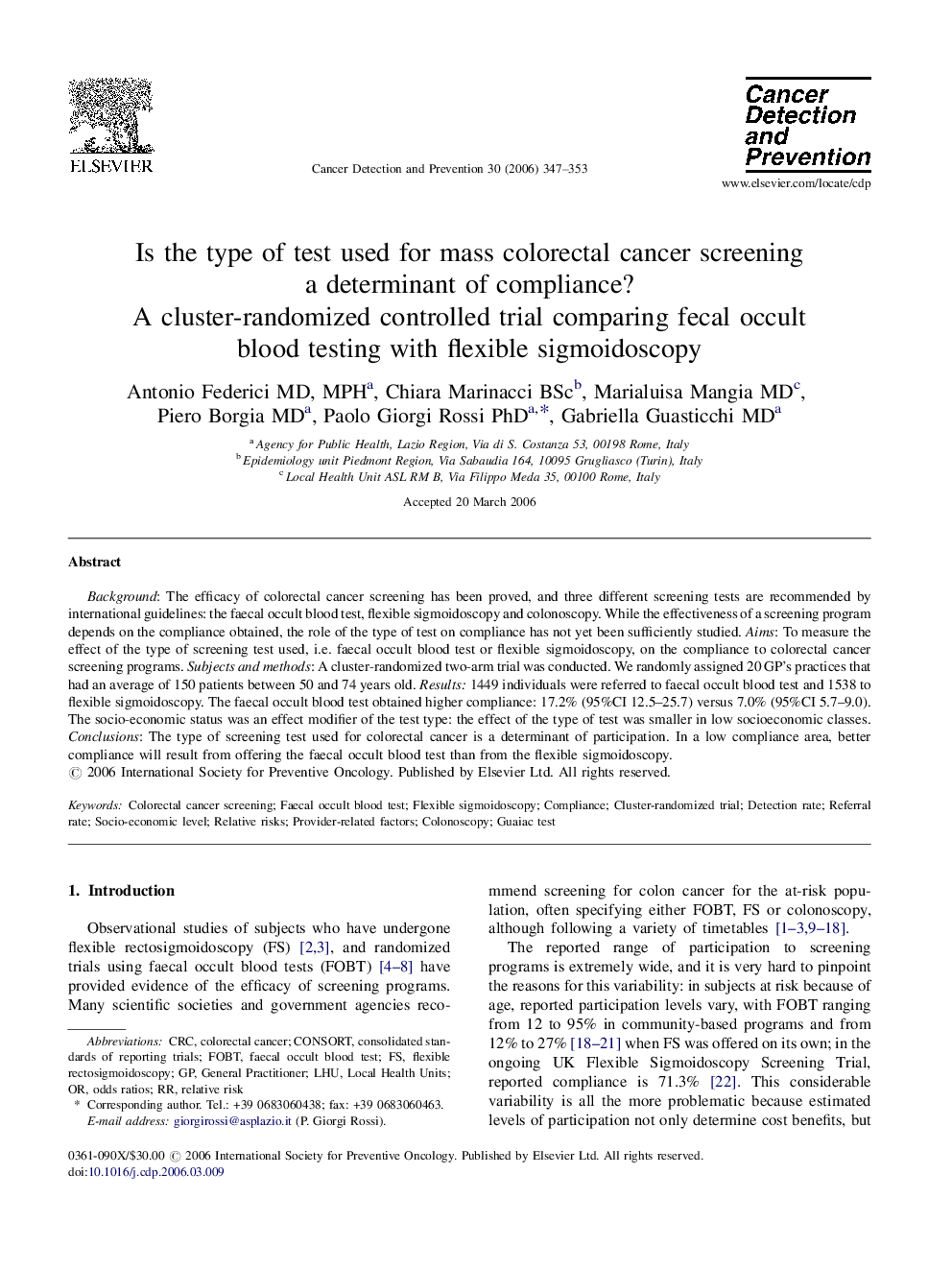| Article ID | Journal | Published Year | Pages | File Type |
|---|---|---|---|---|
| 2108721 | Cancer Detection and Prevention | 2006 | 7 Pages |
Background: The efficacy of colorectal cancer screening has been proved, and three different screening tests are recommended by international guidelines: the faecal occult blood test, flexible sigmoidoscopy and colonoscopy. While the effectiveness of a screening program depends on the compliance obtained, the role of the type of test on compliance has not yet been sufficiently studied. Aims: To measure the effect of the type of screening test used, i.e. faecal occult blood test or flexible sigmoidoscopy, on the compliance to colorectal cancer screening programs. Subjects and methods: A cluster-randomized two-arm trial was conducted. We randomly assigned 20 GP's practices that had an average of 150 patients between 50 and 74 years old. Results: 1449 individuals were referred to faecal occult blood test and 1538 to flexible sigmoidoscopy. The faecal occult blood test obtained higher compliance: 17.2% (95%CI 12.5–25.7) versus 7.0% (95%CI 5.7–9.0). The socio-economic status was an effect modifier of the test type: the effect of the type of test was smaller in low socioeconomic classes. Conclusions: The type of screening test used for colorectal cancer is a determinant of participation. In a low compliance area, better compliance will result from offering the faecal occult blood test than from the flexible sigmoidoscopy.
